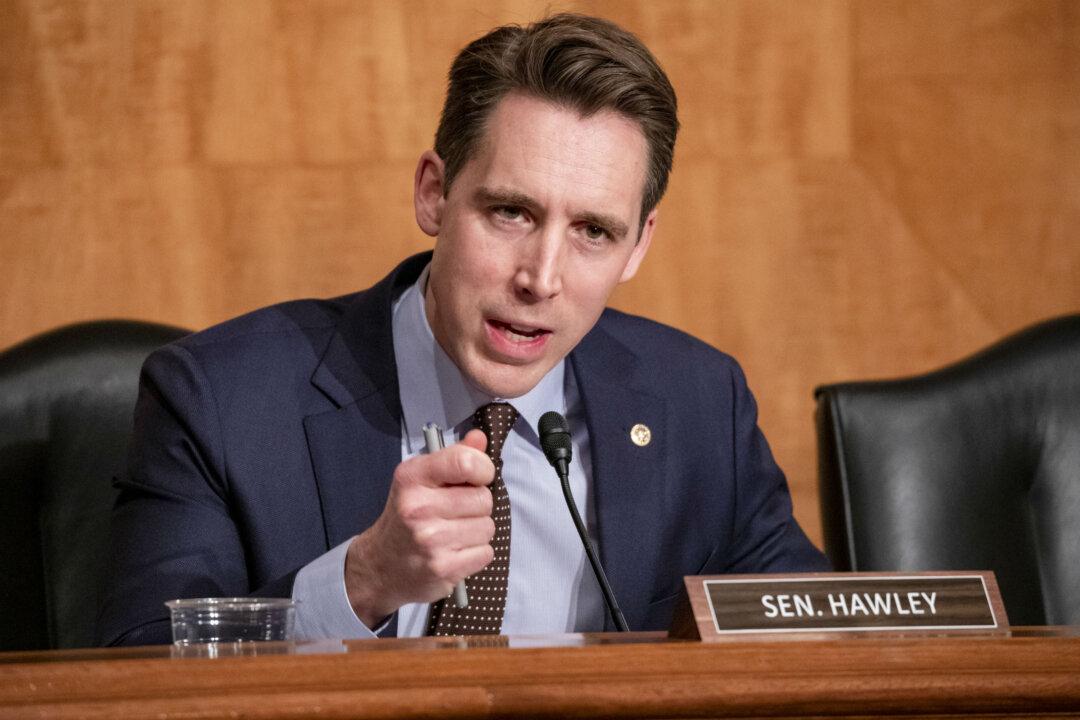Sen. Josh Hawley (R-Mo.) called on the Federal Election Commission (FEC) to investigate Facebook and Twitter for potential illegal in-kind contributions to the Biden campaign after the social media companies limited the spread of a news story damaging to the former vice president and Democratic presidential nominee Joe Biden.
“These possible campaign-finance violations by two of the most powerful corporations in America comes only weeks before Election Day, and while millions of Americans are in the midst of voting. I ask that the FEC take immediate action to investigate these potential violations and, if appropriate, take remedial action to prevent further interference with the 2020 Presidential election,” Hawley said in an Oct. 14 letter to FEC Acting General Counsel Lisa Stevenson (pdf).





